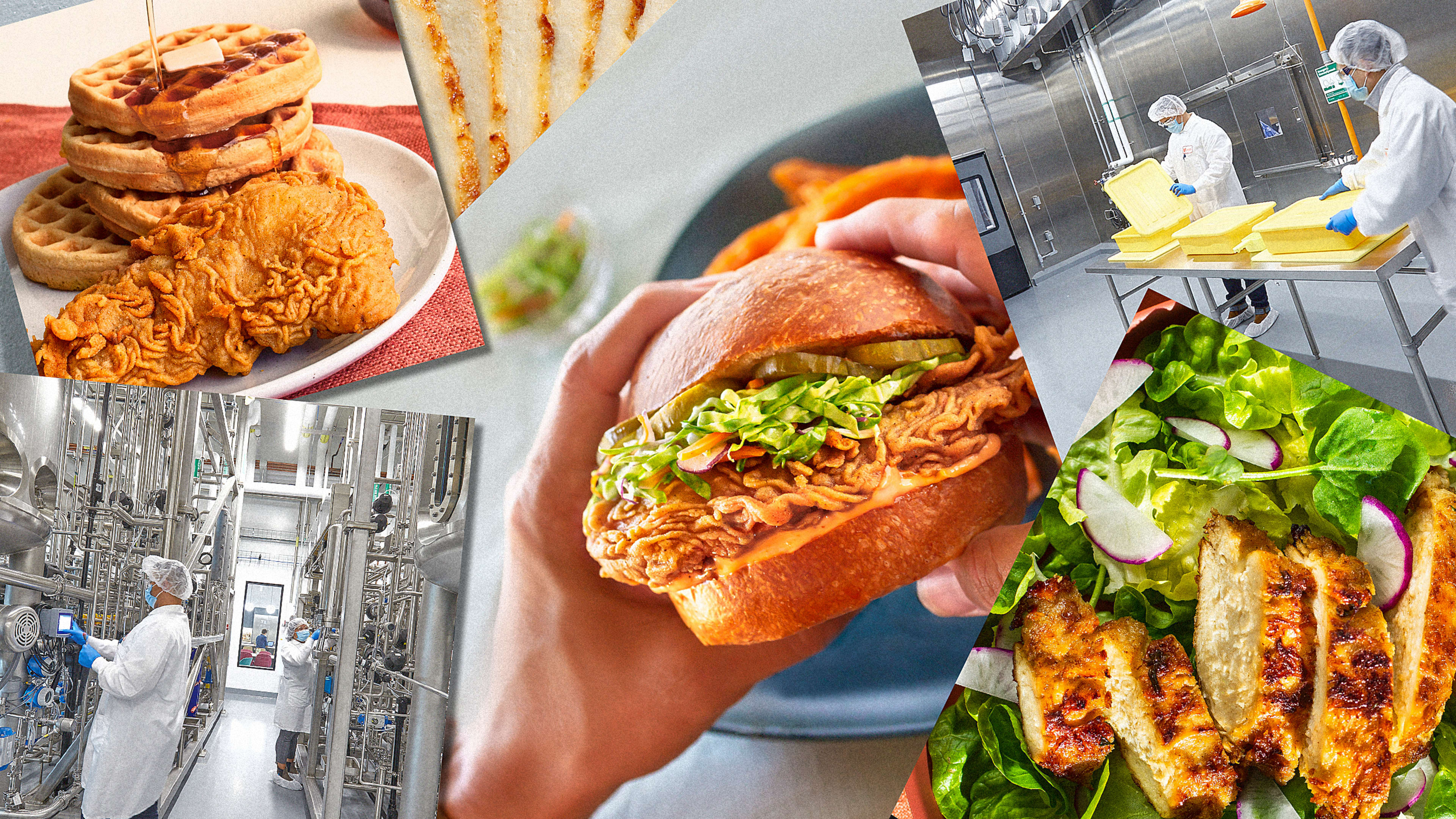Eric Schulze likes to cook meat. Roasted, basted, smoked, rubbed, cured, pulled, even spatchcocked—you name the preparation, and he’s tried it. This makes Schulze a typical American carnivore, but his habits do set him apart at his day job.
Schulze is the VP of global scientific and regulatory affairs at Upside Foods, one of 110 cultivated meat startups and a segment that attracts many people who eschew eating the meat of cows, pigs, and fowl for reasons either environmental or humane. The six-foot-six, red-headed native Texan would likely garner attention given his height and frequent uniform of suit, bowtie, and the occasional flourish of a hat—and then there’s his founder-like attitude that everything he says is true.

But last November, Schulze succeeded in helping the startup, which has raised more than $600 million, become the first startup to get its lab-grown chicken to pass muster with the Food and Drug Administration (FDA). The regulatory approval is not only a coup for Upside and Schulze, but also a huge win for the entire upstart industry, working to produce meat outside of an animal, which McKinsey estimates will be a $25 billion global business by 2030.
Schulze acknowledges that he now eats less meat since starting at Upside in 2016, but it’s still a reverence given his Texas upbringing. “I enjoy meat no matter where it comes from,” he admits openly. But he’s aware of what he’s doing. “I want to unburden myself of my own guilt” of eating it, he says. It’s what keeps him motivated. That and he wants to “accelerate the safety of eating [meat].” Safety is Schulze’s jam. So don’t be surprised to learn that before joining the Silicon Valley-funded startup, he worked for the FDA.
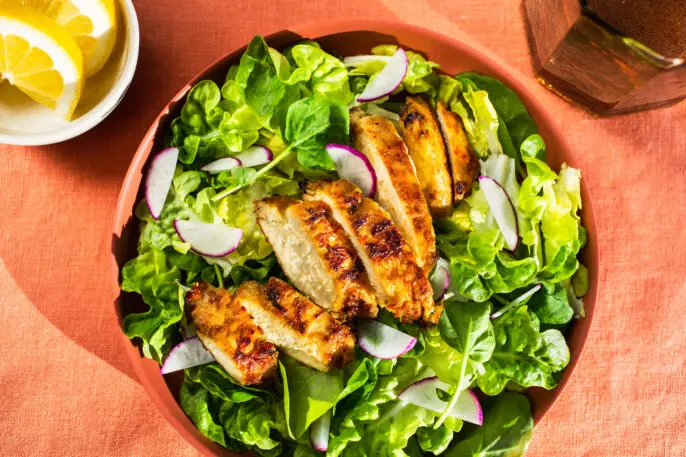
Before carrying the torch for synthetic biology, Schulze was just a really tall kid who played college basketball at Loyola of New Orleans, until he decided he liked learning more. While studying ecology, he took a course in molecular genetics. “That you could change or alter our understanding of the foundations of life without ever directly observing it . . . that led me on a hard pivot,” he says. “The bug bit me.”
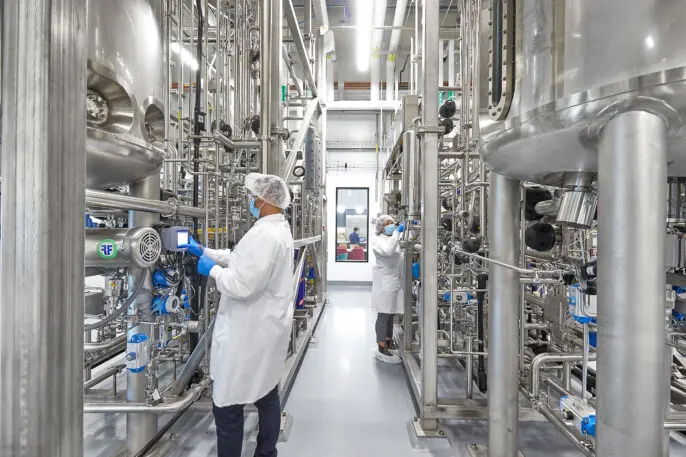
After earning a PhD in stem cell and molecular biology from USC, he worked at a lab in Florida. Regulators spotted him at a conference––beyond literally standing out, he gave a great speech. It wasn’t long before the FDA scooped him up to work on novel food and drugs. Schulze joined a tiger team—a catchall, quick-action group that worked on interdisciplinary projects. Think weird stuff like genetically altered salmon and pigs.
He realized quickly that “companies that worked successfully with the government didn’t see it as something to work against.” It was a partnership, he says. “It’s not you versus the other person. It’s you versus a challenge. Us versus public safety.” Sure, we want to ‘gram our food and devour it, but that’s because we assume it’s safe to eat. A tedious part of our diet, but one that’s essential to society. “Food is not code,” Schulze says. “You cannot afford to ever get it wrong.”

Most regulators, inspired by their meaningful work, don’t leave their government jobs. “I’m very proud of my federal service,” recalls Schulze. The idea to depart didn’t come until he found an article on the Reddit homepage about cultivated meat produced in Berkeley, California, by Memphis Meats (now Upside Foods). It was looking for stem-cell biologists, and he emailed cofounder Uma Valeti.
The pair met outside the UN in New York City when Valeti was there for a conference. Schulze wore his “uniform,” and he may have been sweaty, he says, from running over from Penn Station 14 blocks away. (New York traffic.) Schulze knew he’d be building out the startup’s cell development (you need cells to grow meat in a lab), but he offered so much more. He told Valeti: “You’re gonna need to run a federal regulatory policy—someone who can manage government affairs—and you’re going to have to [land] the messaging.”
How might cultivated meat be labeled? How might consumers react to it? This was—is—going to take a great deal of finesse.
“He said he ‘wouldn’t leave the FDA for any other opportunity,’” Valeti shares. A former cardiologist, Valeti started Upside in 2015 to develop meat that he could get behind. “People love the product but not the process.” Valeti knew regulatory approval might be “a long haul—2, 5, 10 years.” And Schulze was, he says, “as close as possible to an ace in the hole.” Schulze moved to California two weeks later and became employee number 7.
It took Schulze and the team at Upside—lawyers, consultants, and staff––four years to earn the “no questions” letter from the FDA. No questions means that the FDA agrees with Upside’s determination that its chicken will be safe for human consumption. Being an FDA insider didn’t guarantee success, but Schulze isn’t short on confidence. “Going first is part of the pioneer paradox. You set the guard rails, but it doesn’t mean it’s set in stone.”
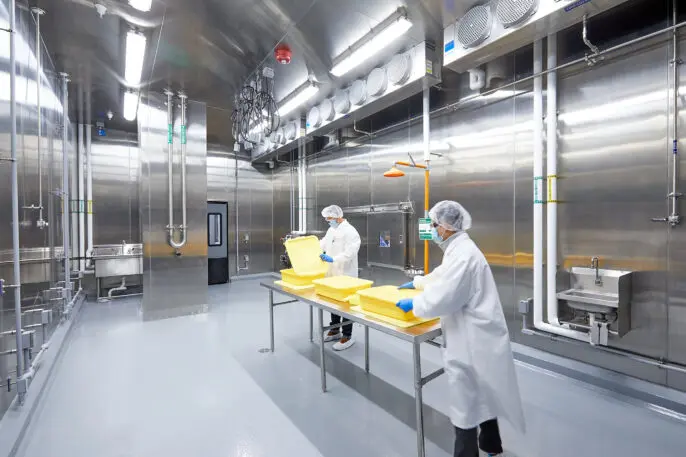
“It was a really important step for the entire industry,” says Josh Tetrick, cofounder and CEO of Eat Just. Yet there’s “never a case where I don’t want us to be first.” Eat Just’s cultivated kabobs and blended chicken nuggets were first to be approved and sold in Singapore, and Tetrick affirms that its cultivated products will be available this year in the United States. (We’ll just have to wait and see.)
But it was Upside that was first in the U.S., and it set the bar high. Other companies may review its safety documents and potentially match them; regulatory agencies in other countries may use this as a road map for their own strategies.
Larisa Rudenko, cofounder of BioPolicy Solutions and a former senior advisor at the FDA, puts much of the onus on startups. “I think it’s incumbent on all producers of cultivated meat and fish to be as careful as they can be in developing their safety assessments, so the public has confidence that [these foods] are safe to eat,” she says. Will we know enough? “I think that some people will never be happy about the amount of information available, and others will be fine.”
The FDA approval “made sense” to Andrew Stout, a New Harvest Fellow in biomedical-engineering professor David Kaplan’s tissue-engineering lab at Tufts University. “The avenues for unexpected adverse events are pretty minimal,” he says. But there are huge scientific hurdles ahead for the entire sector––cost parity, nutrient costs, bioreactor design, achievable cell density, and scale. Says Stout: “I don’t think it’s a done deal at all.”
“We want consumers to get it,” says Schulze. It being “cultivated,” a word that has many meanings. “A mandatory description will help everyone.” But will shoppers “get it”? Will they understand what went into creating a brand-new version of chicken? Can the word “chicken” be stretched to define the bird, the meat, the lab-grown kabob, and the plant-based nugget?
The advances since Schulze joined Upside are immense. “I’m beginning to not be able to pick up on the slight differences” between traditionally raised chicken and Upside’s, he tells me. Ever the culinary hopeful, Schulze wonders if one day he’ll be able to make “the best cultivated pork butt or a really wonderful blend of hamburger meat.”
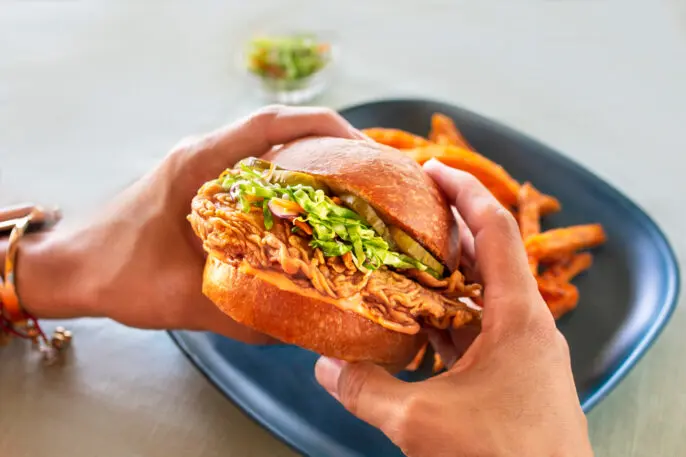
Even with this win, Schulze is only halfway to the finish line. How cultivated meat will be labeled is still up for grabs. With bated breath, Schulze awaits word from the United States Department of Agriculture (USDA). Once Upside has the grant of inspection and a preapproved label from the agency, which is working in partnership with the FDA, Upside can sell its chicken. Don’t go thinking Safeway or Kroger’s yet. If you want first dibs, you’ll need to book a table later this year at chef Dominique Crenn’s 3-Michelin-starred San Francisco restaurant, Atelier Crenn.
Even if chicken seems a bit basic, Schulze the scientist looks to the future. “There’s also the next step in agricultural evolution. In 10, 15, 20 years, there’ll be something incredible that we can’t even think of right now. It will make what we do look like peanuts.”
Recognize your brand’s excellence by applying to this year’s Brands That Matter Awards before the early-rate deadline, May 3.
